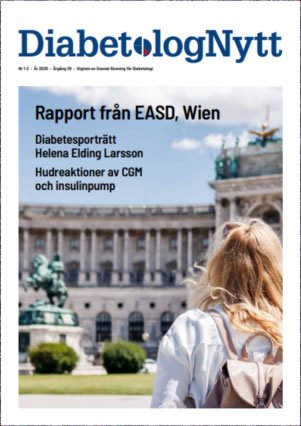Outstanding Educator in Diabetes Award recipient trumpets value of team-based care
Posted By: ADA Dailyon: June 11, 2017In: 2017, ADA Daily, All, Sunday
Print Email
Share0
Tweet
Share0
Share0
Share0
Davida F. Kruger, MSN, APRN-BC, BC-ADM
The Diabetes Control and Complications Trial (DCCT) did more than confirm that intensive glucose control can reduce the complications and mortality associated with diabetes. It also established the role of a diabetes team in patient care.
“We didn’t just learn that it takes a team to manage diabetes, we learned that the patient is the most important member of the team,” said Davida F. Kruger, MSN, APRN-BC, BC-ADM, a nurse practitioner at the Henry Ford Health System. “Much of our current expertise in diabetes care, as well as our experts, came out of the DCCT.”
Kruger is one of those experts. She received this year’s ADA Outstanding Educator in Diabetes Award and presented her award lecture Saturday morning at the Scientific Sessions.
“By the time I had graduated from nursing school, my grandmother and her children had all been diagnosed with diabetes,” she recalled. “It was no surprise that I wanted to work on diabetes.”
Kruger’s first nursing job was with the Detroit Visiting Nurses Association. Working in a hospital was not an option, she said.
“Even as late as 1976, nurses were expected to stand when a doctor entered the room. That wasn’t going to happen,” she joked.
The Detroit Visiting Nurses Association had a different outlook on patient care. Nurses didn’t work alone with patients, they worked in teams with dieticians, social workers, therapists, and other specialists as needed.
Nurses were expected to coordinate the other nonphysician specialists and advocate for the patient. It was an experience that shaped Kruger’s involvement in the DCCT and diabetes care.
“My mother did not receive any type of education or medical nutrition therapy for her T1DM” she explained. “The technology and knowledge of the time might not have extended her life, but it could have made a significant difference in her quality of life.”
Kruger was recruited to the DCCT as one of 12 clinical coordinators. By the end of the trial, she was the National Chair of the Trial Coordinators Committee.
“That wasn’t the most important change during the trials,” she said. “When the trial began, the principal investigators [PIs] sat around a table and the clinical coordinators sat at the back of the room. The PIs spent so much time turning around asking us questions that we found ourselves at the table with them. The DCCT didn’t just establish the clinical effects of intensive glucose control, it established the clinical utility of the team approach to diabetes, and the positive impact of diabetes education.”
Diabetes education can have even greater impact when delivered by a nurse practitioner [NP], she added. NPs and physicians produce equivalent diagnostic results in diabetes, but nurse practitioners are far more likely to provide prevention counseling, health promotion, and more personalized therapies, Kruger said.
“There’s a significant and growing gap between the need for diabetes care and the supply of adult and pediatric endocrinologists,” she said.
“Nurse practitioners have now the knowledge and the expertise to fill that gap. Nurse practitioners are diabetologists.”
Nyhetsinfo
www red DiabetologNytt

